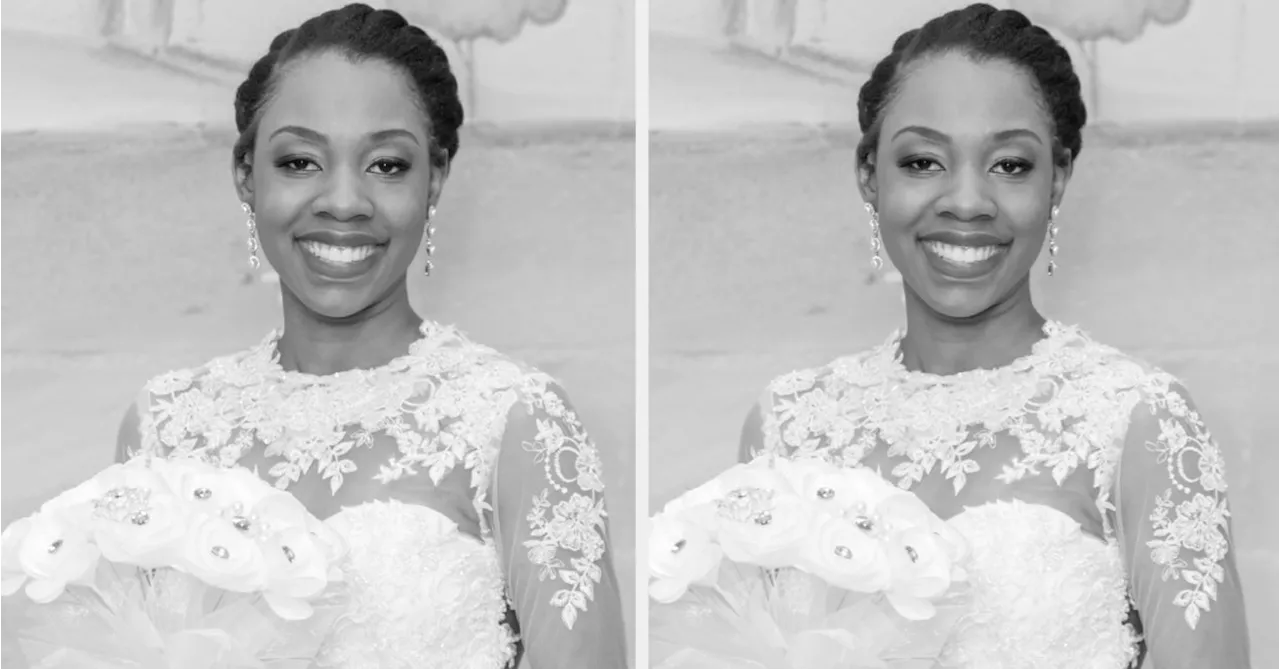An American woman of color recounts the breakdown of her first marriage to an Italian American man, highlighting the significant role played by the prejudices and intolerance of his family. The author describes the subtle microaggressions and overt racism she faced, ultimately leading to her decision to divorce.
I always kept my composure rather than make a fuss when offended, because I didn’t want to be painted as the angry Black woman. That’s where I went wrong. I had let too much slide and didn’t speak up enough. They say that when you marry your spouse, you also marry their family. These words couldn’t be truer. Sadly enough, these outside forces are what led to the demise of my first marriage — which happened to be an interracial relationship.
I’m an American woman of color, and my ex-husband is Italian American. We met at church, initially bonding over our shared spiritual beliefs and artistic interests. After 10 years of being together and a six-year marriage, I filed for divorce because I loved myself too much to lose myself — my true self, who proudly represented my culture and heritage. My family didn’t give me any pushback when they learned about my engagement. In fact, they supported our union and treated my ex-husband with the utmost respect. We did, however, face opposition from certain members of his family. I initially didn’t know what I was signing up for before meeting his family, but soon found out that I was in for a wild ride. It seemed like the family had developed false assumptions about me from the moment they met me. My first-ever encounter with them felt like an FBI interrogation, where they asked me inappropriate questions about some of the most intimate parts of my personal life. Perhaps I should have given the marital union more thought before signing the dotted line, but I don’t regret it one bit considering that it propelled my self-love journey to a whole new level. I’ll never forget our wedding day, walking down the church aisle, distracted by the familial drama that transpired just a few days prior. We tried not to give the situation too much energy, however, because we refused to let it overshadow our day. Brewing tensions lingered from the day we announced our engagement to well after the day that we exchanged our vows. We didn’t want any disturbances or added stress at their expense while planning the wedding, so we had to set firm boundaries, such as not allowing this individual to dictate our decisions. It created a serious problem, to the point where we witnessed grown-ass adults act like toddlers and throw temper tantrums for not getting their way. I’d be lying if I denied that those uncomfortable moments of adversity are still embedded in my brain. It’s what initially came to mind when I would reminisce about our nuptials, leaving me with resentful thinking when the memories resurfaced. Of course, our cultural differences were to blame for these conflicts. I could tell that racial bias clouded their judgment of me from the microaggressive comments that were directed my way. After our engagement, an in-law scolded us for not letting them know about the proposal beforehand, as if I had some magic crystal ball predicting when my ex would pop the question. This person also tried to talk us out of getting married and suggested that it would result in early pregnancy — like that’s what all women who look like me have a reputation for. Mind you, we were both 23 at the time and in the early stages of our careers, so the thought of having children was the furthest thing from our minds. Seven years later and we’re still childless. In hindsight, that brings me relief, because their offensive comment influenced my decision to not want to bring children into that bloodline. This also played a role in my decision to divorce, because I still wanted little ones. I remember being on the receiving end of a few racially motivated comments. What’s crazy is, I wasn’t the one who would bring up race during family gatherings. They were, and certain family members would randomly make stupid remarks unprovoked. like the instance where Ben Affleck discovered that one of his ancestors was a slave owner. The in-law’s response to Affleck’s disappointment was that he should “just get over it” because we can’t change the past. I have no idea how that conversation even came about, but that’s just one example of the ignorant bullshit that would slip out of their mouths at any given moment. Had I retaliated, then all hell would have broken loose, so I always kept my composure rather than make a fuss when offended, because I didn’t want to be painted as the angry Black woman. That’s where I went wrong. I had let too much slide and didn’t speak up enough. I also felt like I couldn’t be my authentic self with how family members passed judgment on others, like one’s disapproval of their California-based family friend who frequently took her children to Disneyland. I mean, what’s the harm in that? Kids love Disney, so I didn’t see the issue in making regular trips if it’s their way of bonding as a famil
Relationships Race & Ethnicity Interracial Marriage Family Disapproval Racism Microaggressions Divorce Self-Love
United States Latest News, United States Headlines
Similar News:You can also read news stories similar to this one that we have collected from other news sources.
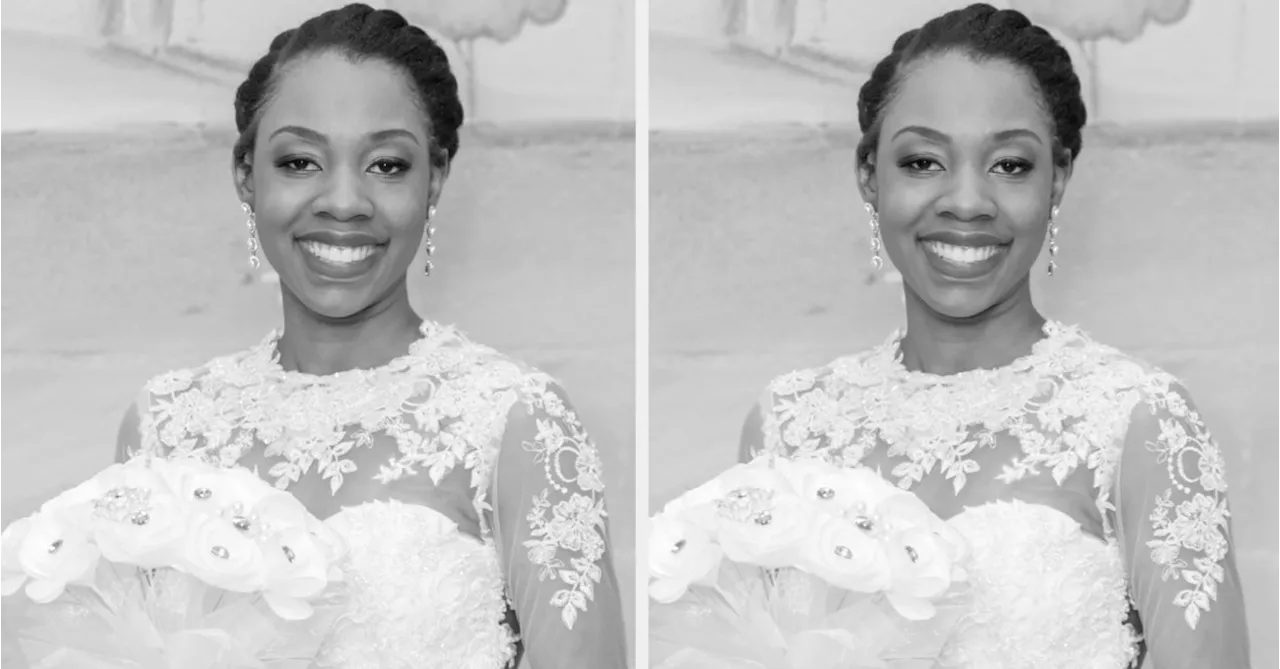 How Ending Interracial Marriage Improved My Mental State'I always kept my composure rather than make a fuss when offended, because I didn’t want to be painted as the angry Black woman. That’s where I went wrong. I had let too much slide and didn’t speak up enough.'
How Ending Interracial Marriage Improved My Mental State'I always kept my composure rather than make a fuss when offended, because I didn’t want to be painted as the angry Black woman. That’s where I went wrong. I had let too much slide and didn’t speak up enough.'
Read more »
 The Decline of Marriage: A Threat to American Prosperity and CultureThis article explores the alarming decline of marriage in the United States over the past 50 years and its detrimental effects on individuals, families, and society as a whole. It highlights the positive correlation between marriage and well-being, child development, and community stability, emphasizing the importance of strengthening this vital institution.
The Decline of Marriage: A Threat to American Prosperity and CultureThis article explores the alarming decline of marriage in the United States over the past 50 years and its detrimental effects on individuals, families, and society as a whole. It highlights the positive correlation between marriage and well-being, child development, and community stability, emphasizing the importance of strengthening this vital institution.
Read more »
 ‘American Primeval’ Review: Netflix’s Violent, Bloody Saga Of The American Frontier Is A Harrowing WatchNetflix’s new Western series is a bleak and bloody affair.
‘American Primeval’ Review: Netflix’s Violent, Bloody Saga Of The American Frontier Is A Harrowing WatchNetflix’s new Western series is a bleak and bloody affair.
Read more »
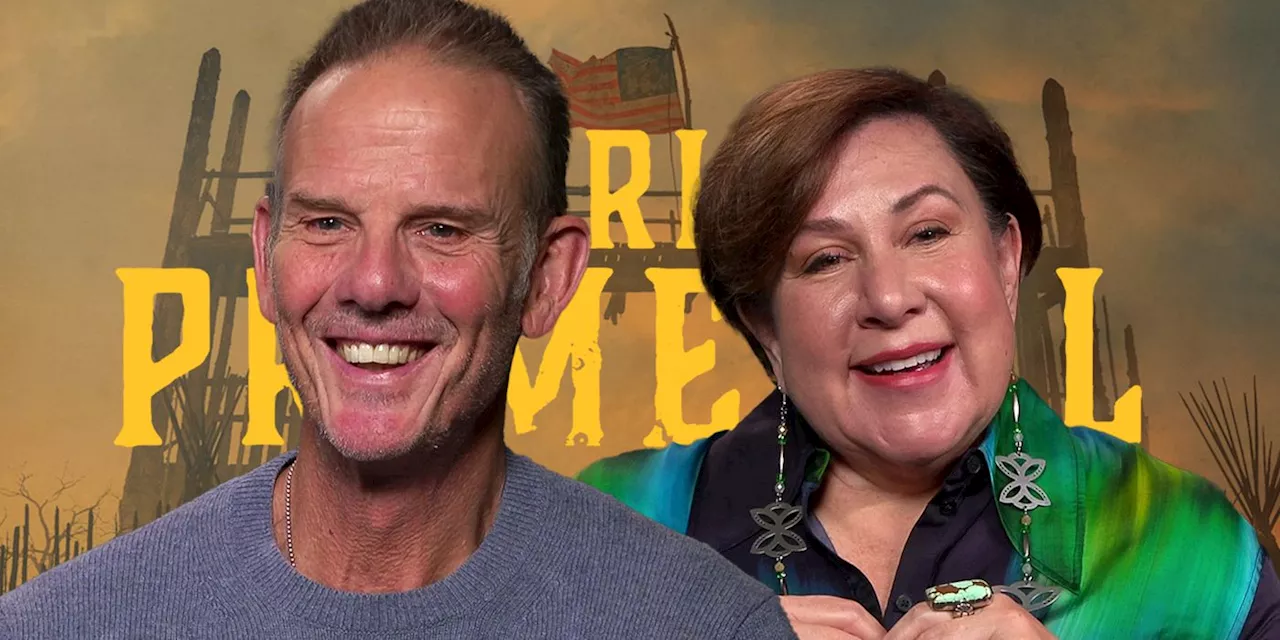 Peter Berg's 'American Primeval': A Brutally Honest Look at the Birth of the American WestDirector Peter Berg delves into the violent and gritty expansion of the American West in his new Netflix series, 'American Primeval'. He discusses the importance of authenticity, the challenges of filming on location, and the inherent violence of humanity with Collider.
Peter Berg's 'American Primeval': A Brutally Honest Look at the Birth of the American WestDirector Peter Berg delves into the violent and gritty expansion of the American West in his new Netflix series, 'American Primeval'. He discusses the importance of authenticity, the challenges of filming on location, and the inherent violence of humanity with Collider.
Read more »
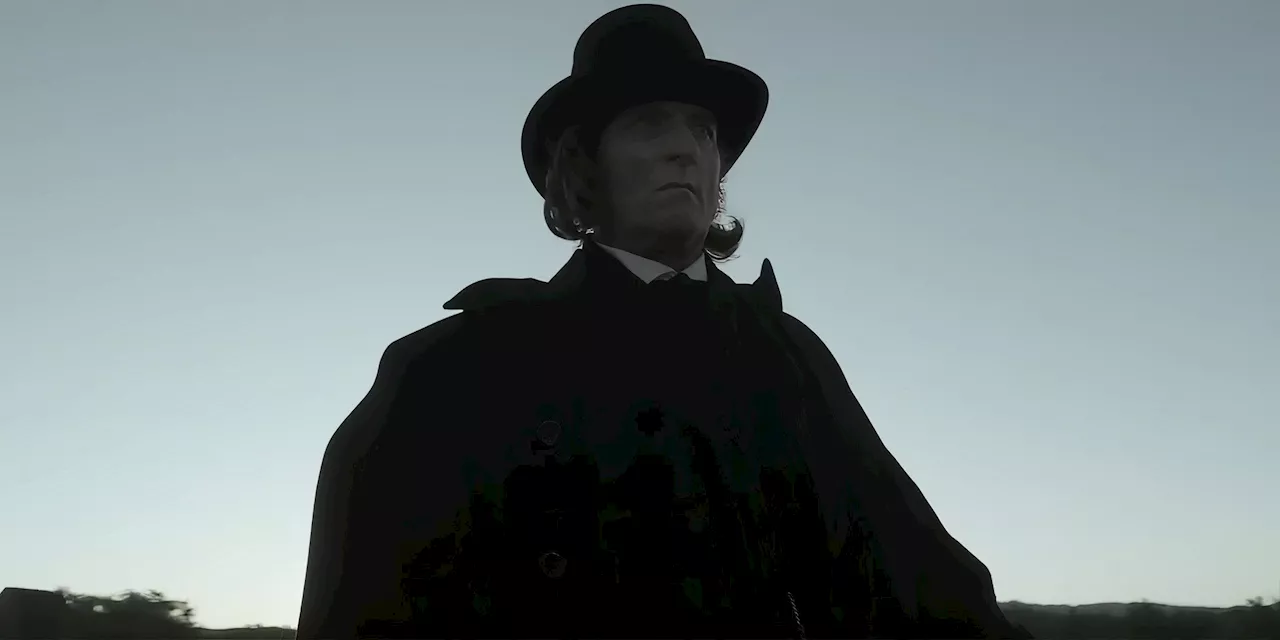 American Primeval: A Gritty Look at the American WestNetflix's American Primeval offers a brutal and captivating glimpse into the violent frontier of 1850s Utah. Combining historical figures with fictional characters, the series explores the struggle for power and survival amidst the expansion of the American West.
American Primeval: A Gritty Look at the American WestNetflix's American Primeval offers a brutal and captivating glimpse into the violent frontier of 1850s Utah. Combining historical figures with fictional characters, the series explores the struggle for power and survival amidst the expansion of the American West.
Read more »
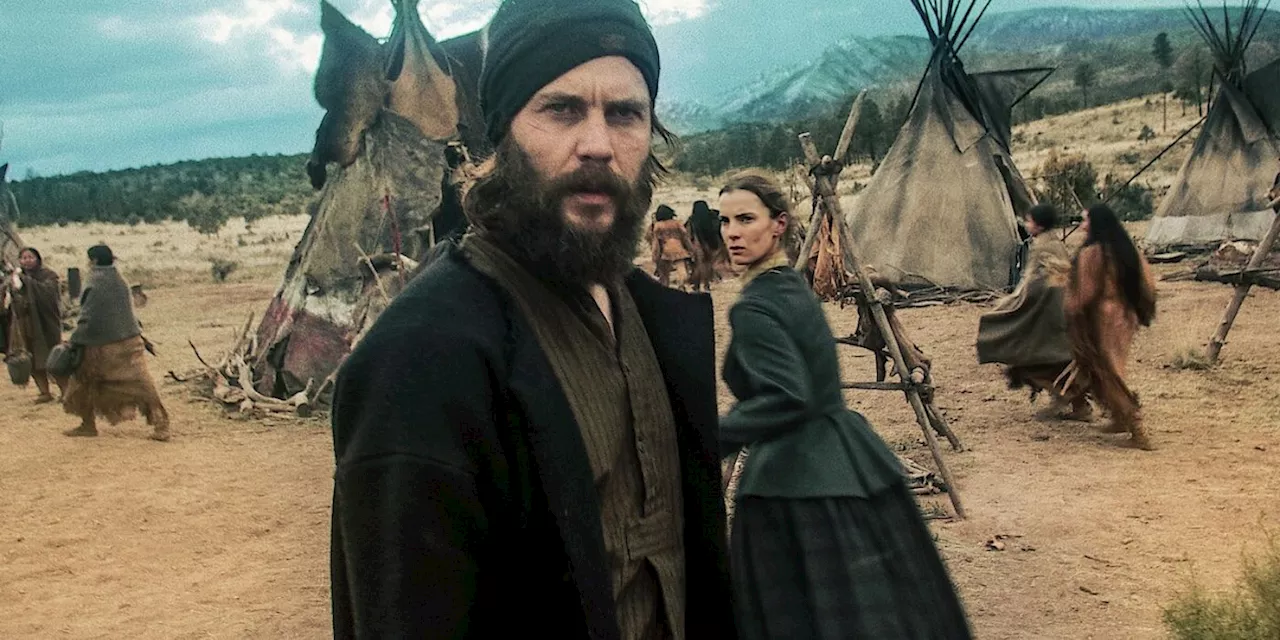 American Primeval: A Gritty Reimagining of the American WestAmerican Primeval, a new Netflix series, presents a raw and realistic depiction of the American West during the Utah War. While fictional characters drive the narrative, the series is deeply rooted in historical events, including the Mountain Meadows Massacre.
American Primeval: A Gritty Reimagining of the American WestAmerican Primeval, a new Netflix series, presents a raw and realistic depiction of the American West during the Utah War. While fictional characters drive the narrative, the series is deeply rooted in historical events, including the Mountain Meadows Massacre.
Read more »
